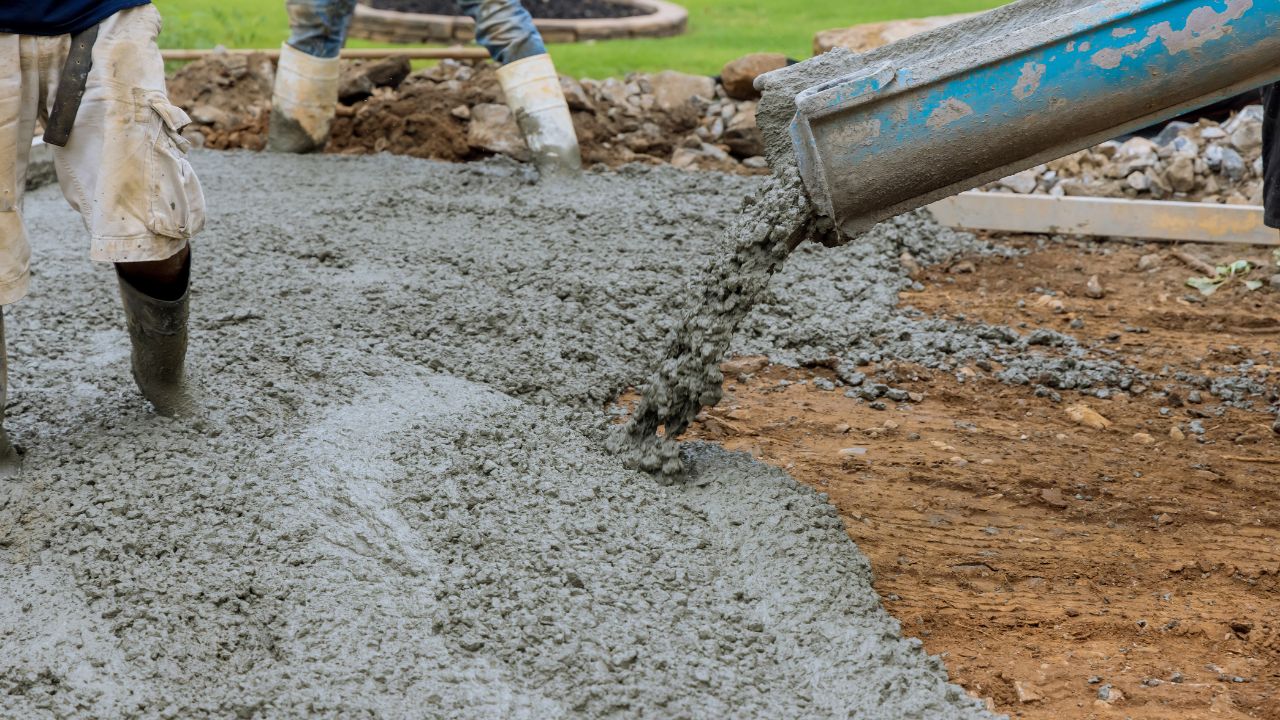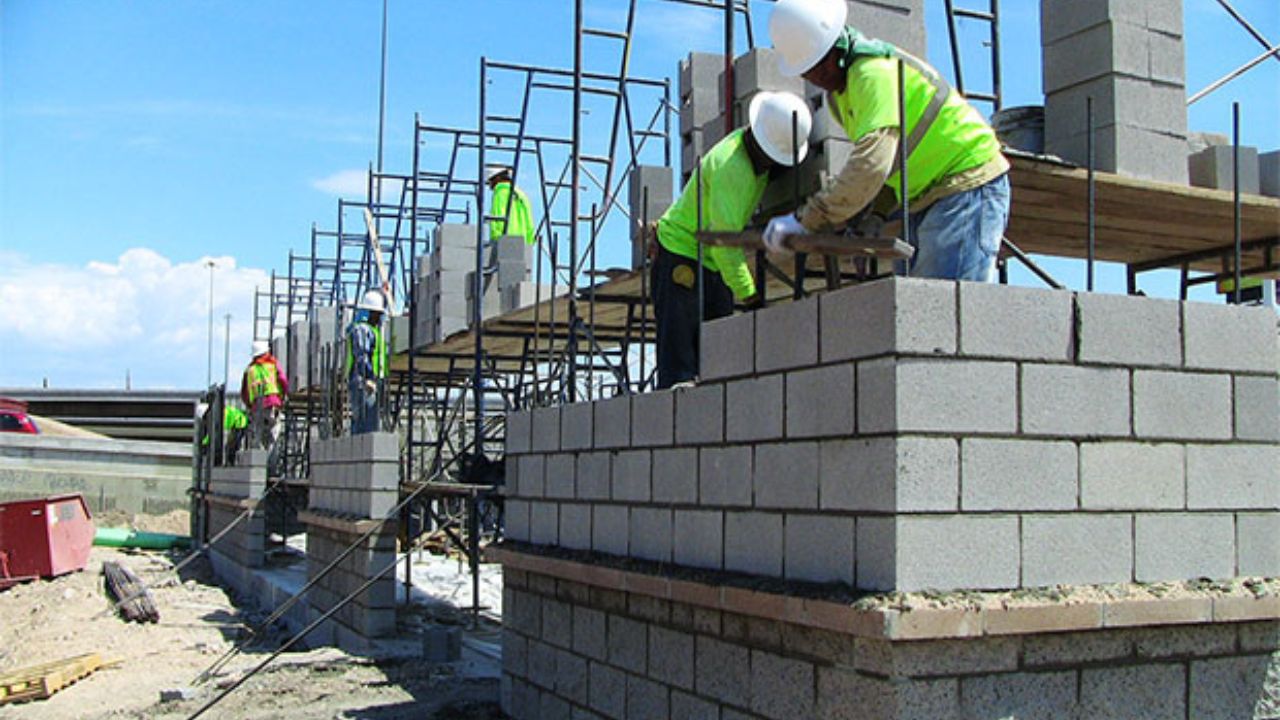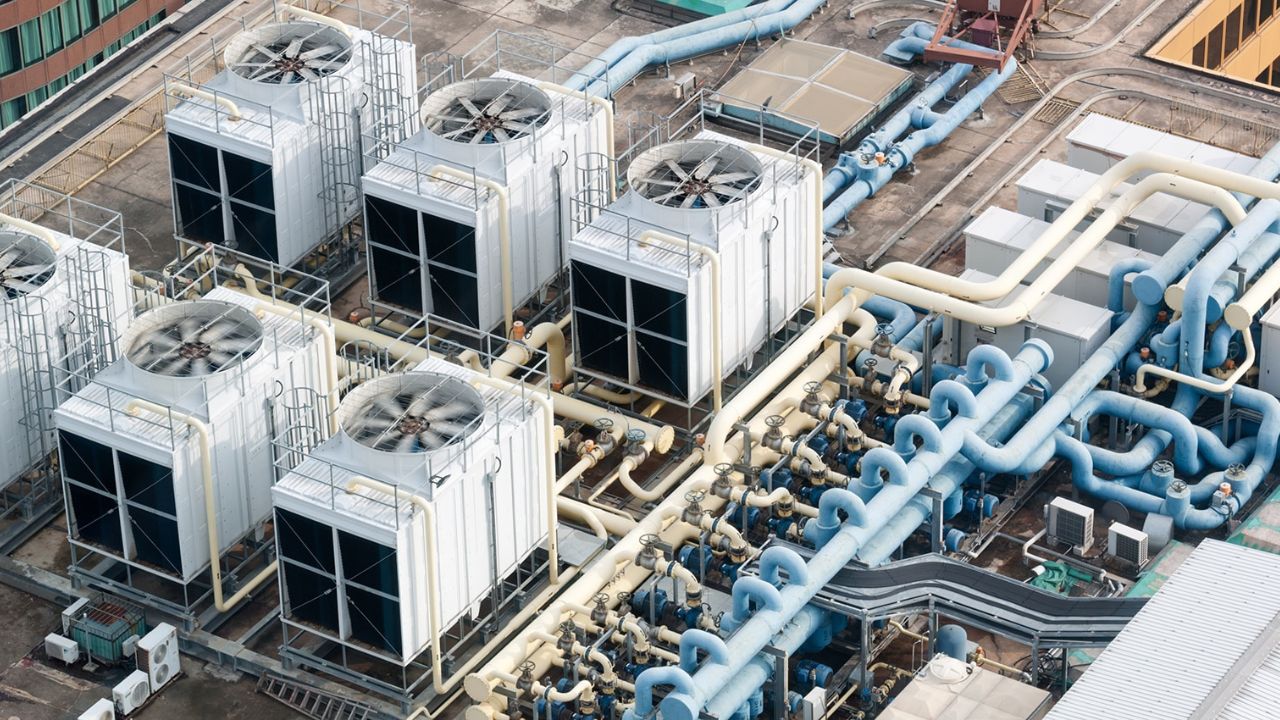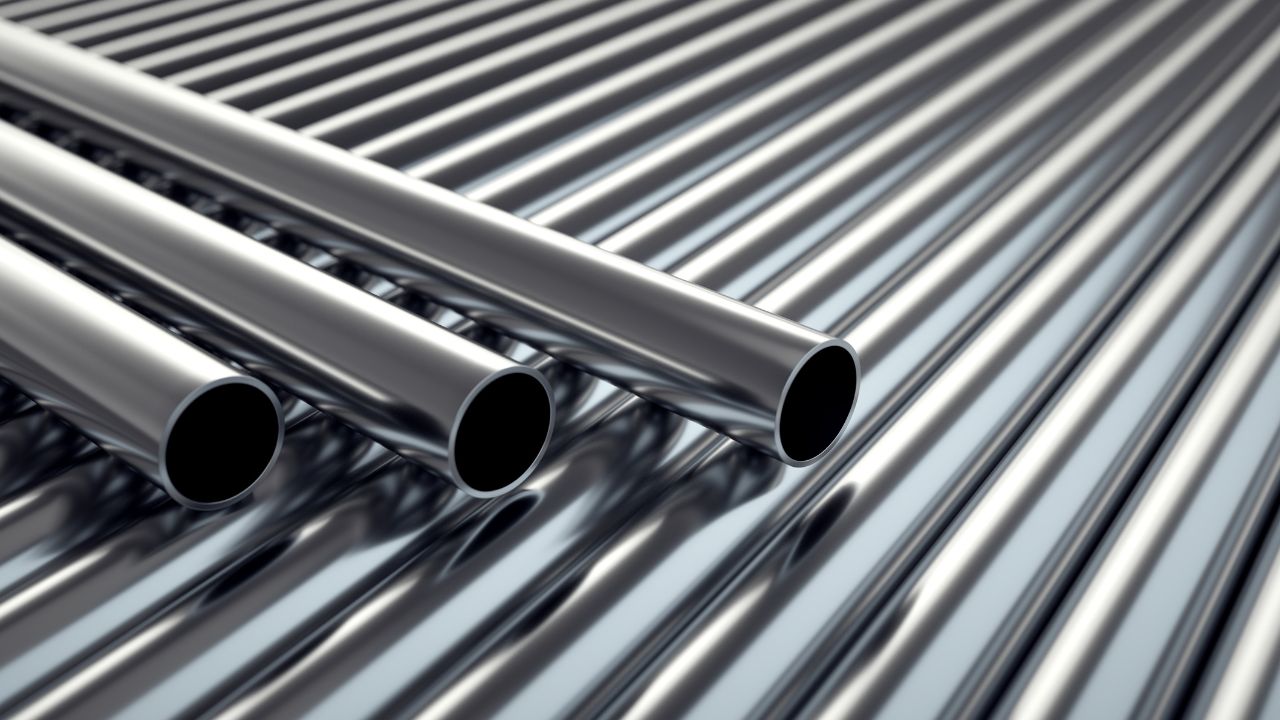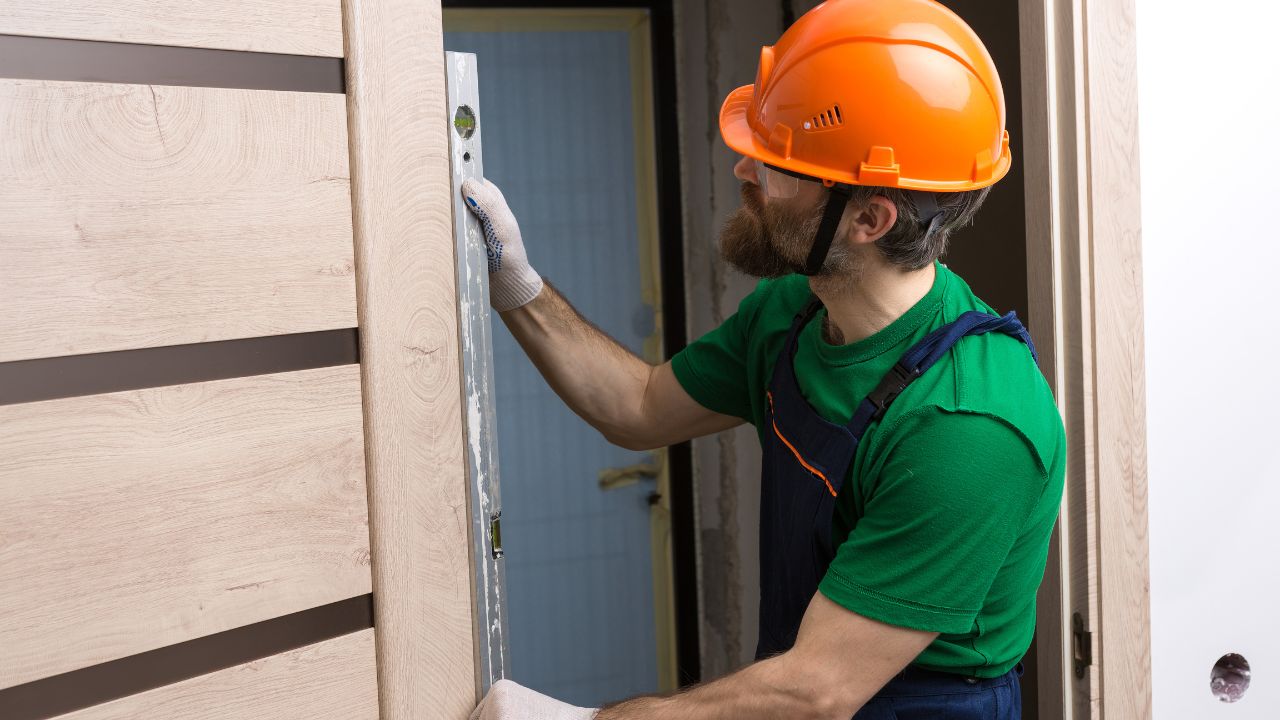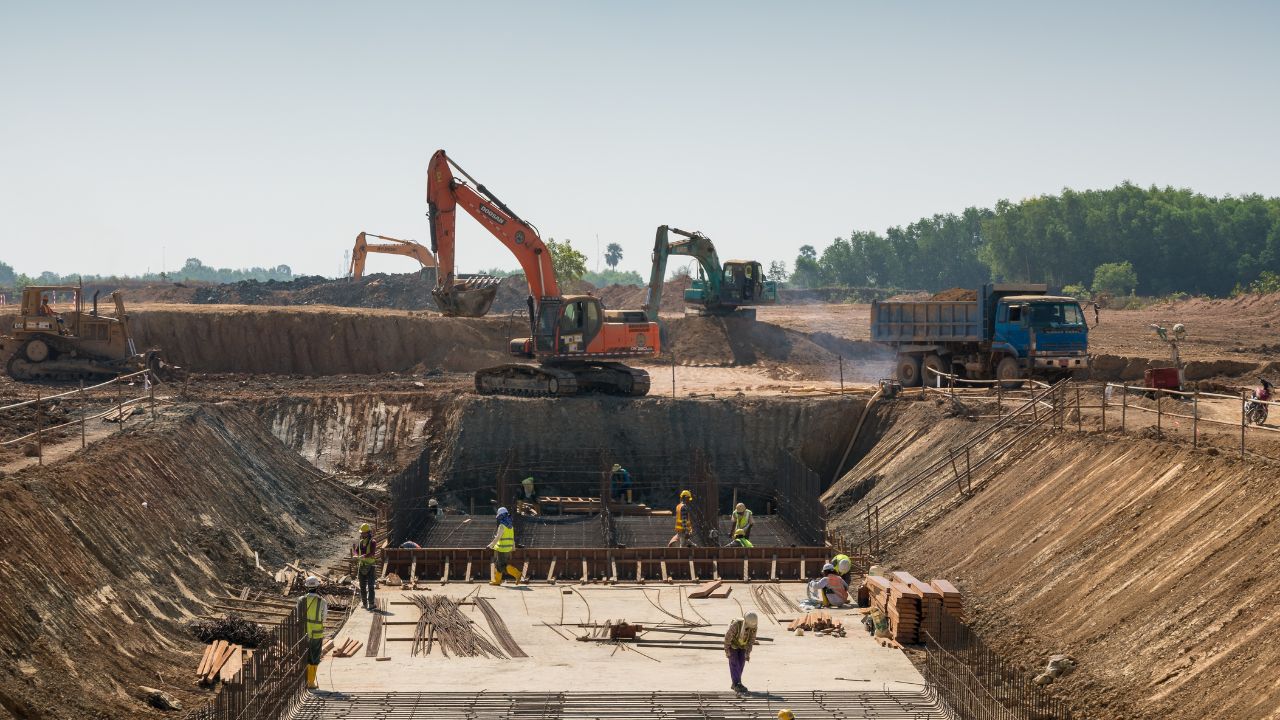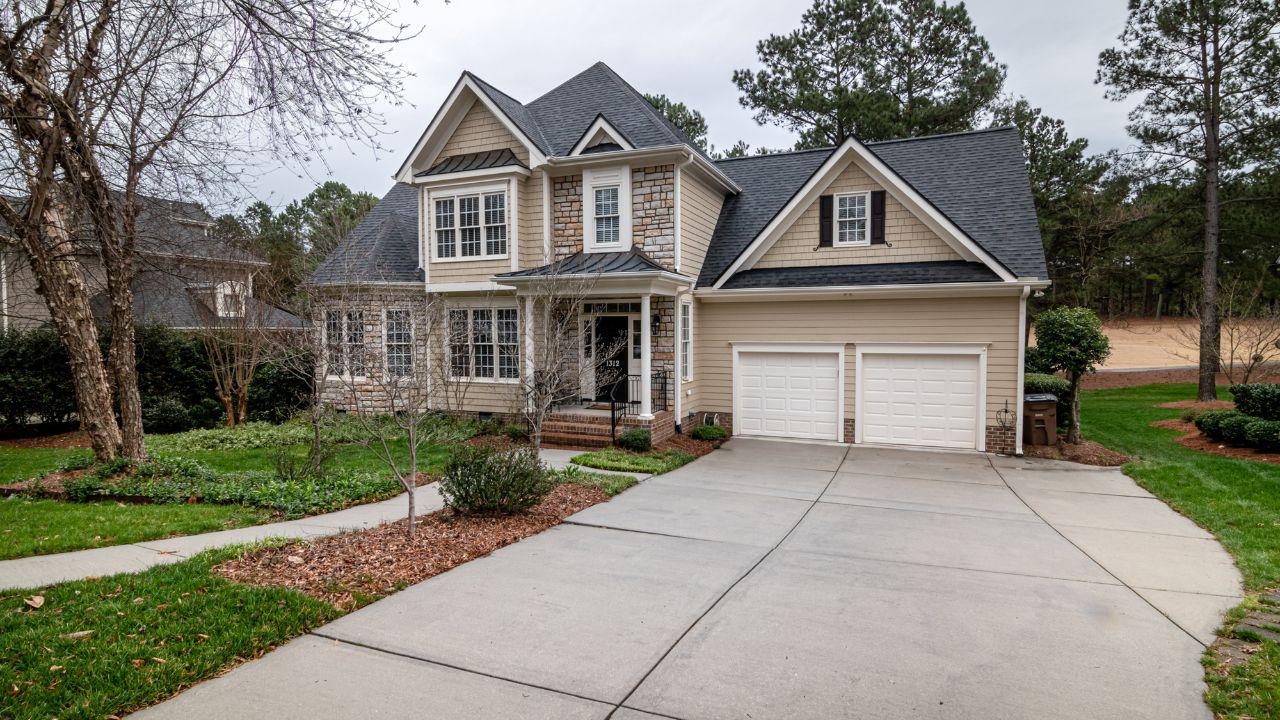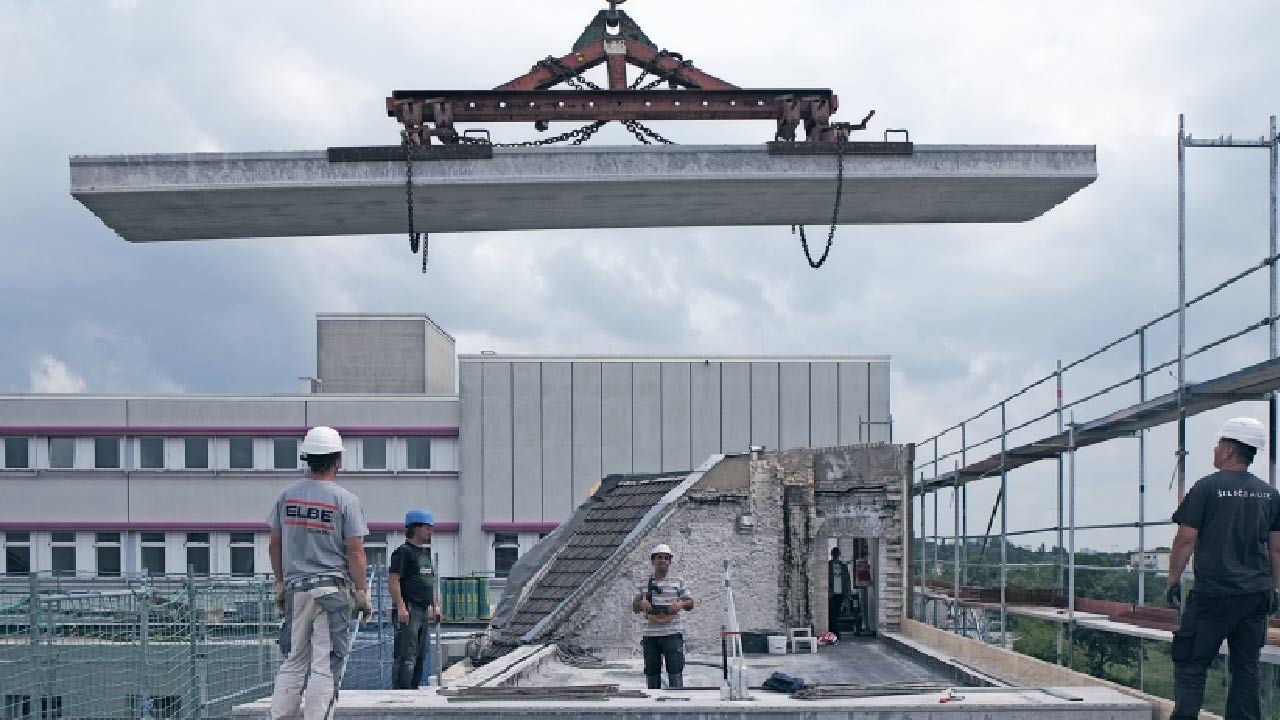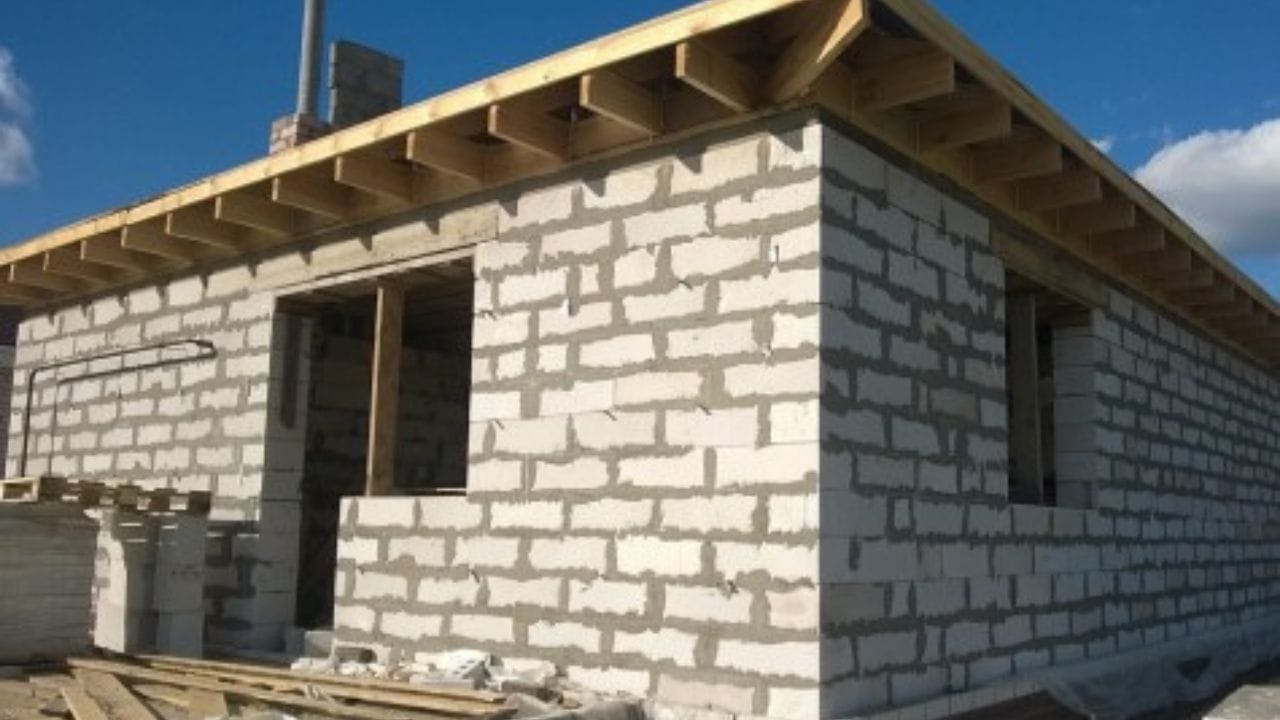- Homepage
- Concrete Cost Estimator in Jacksonville, FL
Concrete Cost Estimator in Jacksonville, FL
Leading provider of concrete estimating
The average cost of concrete nationwide is $175+ per cubic yard, with most concrete companies charging between $154 and $231+ per cubic yard. The majority of homeowners spend no less than $5000 total on smaller projects and up to $53,800 or more total on larger concrete projects.In the bustling city of Jacksonville, concrete remains a staple in construction and renovation projects, renowned for its durability, versatility, and cost-effectiveness. Whether it’s laying a new driveway, setting up sidewalks, or constructing commercial foundations, understanding the costs involved is crucial. For Jacksonville homeowners, estimate residential concrete costs to plan your project accurately.
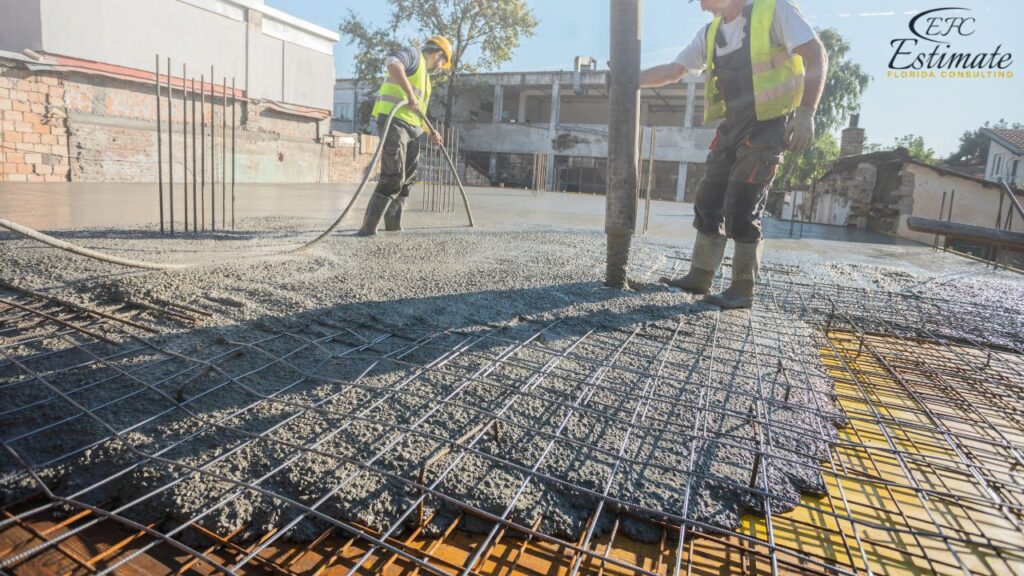
We Work for All Construction Trades
Construction trades encompass a variety of specialized roles, each critical to the successful completion of a project. Skilled tradespeople not only ensure the work is done right but also enhance safety, efficiency, and compliance with local building codes. From the initial groundwork to the final touches, every step requires expertise from dedicated professionals.
Concrete Foundation Cost per Square Foot
The cost of concrete foundations is typically calculated on a per square foot basis. This method covers different types of foundations, including those with walls and those that are just slabs. To figure out the total cost, the entire area of the foundation is taken into account. This square footage pricing is used for various types of concrete work, ranging from simple slabs to complex stem wall basement foundations. Before adding the costs of excavation, vapor barriers, and any necessary insulation, foundation prices usually fall between $5 and $25 per square foot.
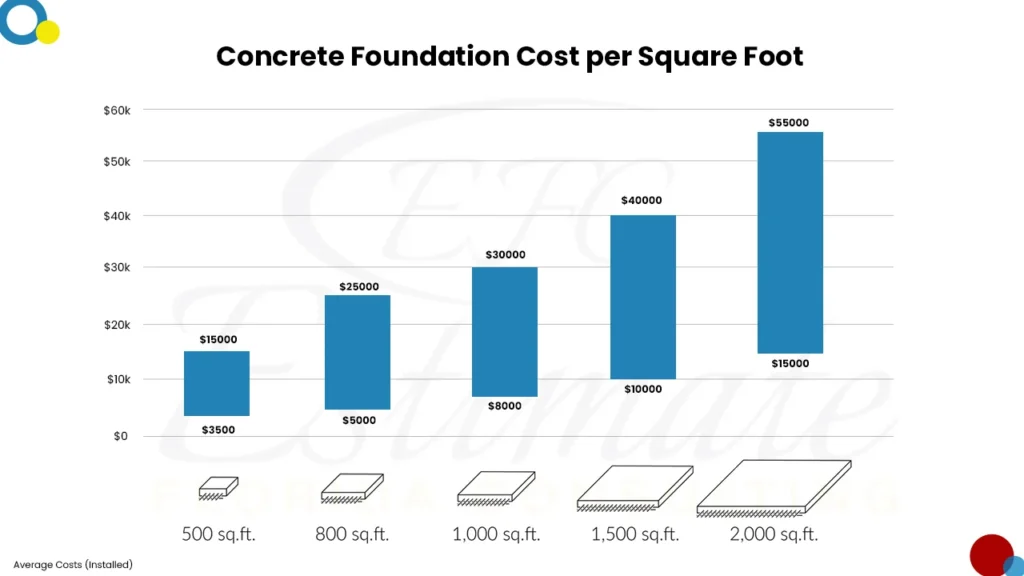
| QUANTITY (CUBIC YARDS) | DELIVERY PRICE RANGE |
|---|---|
| 1 | $145 to $160 |
| 2 | $290 to $350 |
| 3 | $450 to $490 |
| 5 | $720 to $790 |
| 8 | $1,200 to $1,280 |
| 10 | $1,360 to $1,470 |
| 20 | $2,610 to $2,930 |
Want to Start Your Project with the Best Contractors?
Let’s Take Your Projects to the Next Level.
& What's you will get:
- Connecting You to Top Local Contractors
- Professional Consulting, Contractors Near You
- From Expert Advice to Local Contractor Connections
Contact Now
Let's discuss with a cup of coffe
Concrete Installation Cost
| Type of Installation | Price Range per Square Foot |
|---|---|
| Basic Concrete Slab | $6.20 to $10.84 |
| Concrete Patio | $13.01 to $14.06 |
| Reinforced Concrete | $6.16 to $22.40 |
| Concrete Foundation | $6.30 to $21.00 |
| Concrete Driveway | $8.40 to $19.60 |
| Stamped Concrete | $12.60 to $22.75 |
Why Accurate Estimations Matter?
Accurate estimations play a pivotal role in the success of any project, especially in the realm of construction and renovation where budgets are tightly managed. One of the primary reasons why accurate estimations matter is their ability to ensure that projects stay within budget. By providing a realistic projection of the costs involved, accurate estimations help stakeholders plan and allocate resources effectively, minimizing the risk of overspending and financial strain. This is particularly crucial in large-scale projects where even minor deviations from the budget can have significant repercussions. Moreover, accurate estimations foster clear communication between clients and contractors.
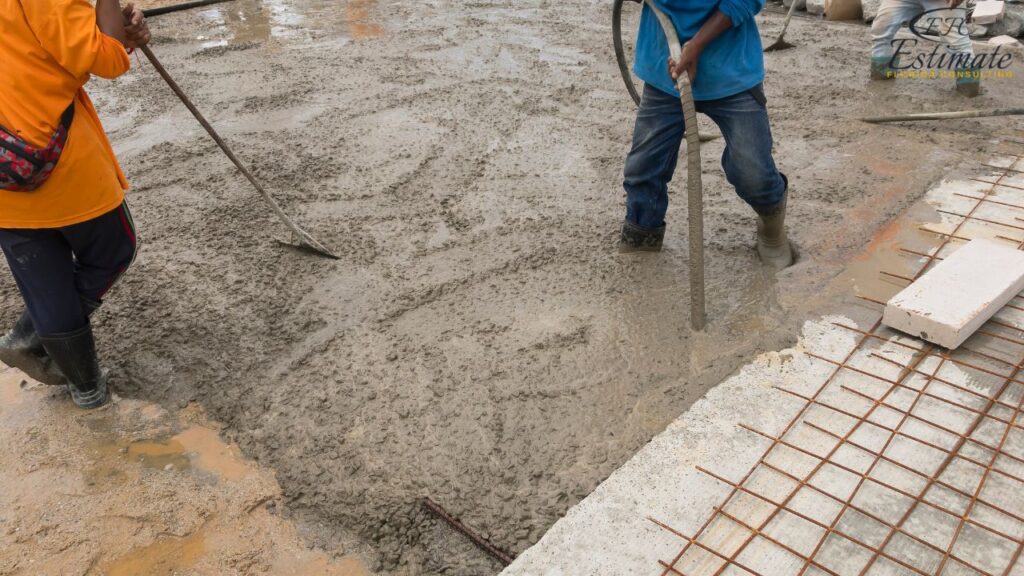
When clients have a precise understanding of the anticipated costs upfront, they can make informed decisions about the scope of the project and prioritize their requirements accordingly.
Factors Influencing Concrete Costs in Jacksonville
Local Regulations
In Jacksonville, as in any other locality, adherence to local building codes and regulations is paramount for any construction project, including concrete work. These regulations are designed to ensure the safety, durability, and compliance of structures with established standards. Depending on the scope and nature of the concrete project, special permits may be required, adding to the overall cost. Permitting processes can involve administrative fees, inspections, and documentation requirements, all of which contribute to project expenses. Failure to comply with these regulations can result in costly fines, delays, or even the halting of the project, making it imperative for contractors and property owners alike to prioritize regulatory compliance.
Videos For Concrete Construction
Concrete Driveway
Concrete Slab
Concrete Pour
Material Costs
The cost of materials is a significant factor influencing the overall expense of concrete projects in Jacksonville. This includes the price of concrete mix, reinforcement materials such as rebar or mesh, and any additives or sealants required for the project. The quality and specifications of these materials can vary, affecting their price points. Additionally, fluctuations in supply and demand, as well as market conditions, can impact material costs over time. Contractors must carefully source materials from reliable suppliers while considering factors such as durability, sustainability, and compatibility with local environmental conditions. Balancing quality with cost-effectiveness is crucial to ensure the longevity and performance of the concrete structure while staying within budget constraints.
Labor Rates
Labor costs represent a significant portion of the expenses associated with concrete projects in Jacksonville. Skilled labor is essential for tasks such as concrete pouring, finishing, and curing, requiring specialized knowledge and expertise. The prevailing wage rates in Jacksonville, influenced by factors such as labor market conditions, union agreements, and skill levels, can directly impact project costs. Experienced concrete workers command higher hourly rates compared to entry-level laborers, reflecting their proficiency and efficiency in executing complex tasks. Contractors must factor in labor costs when estimating project budgets, accounting for variables such as workforce size, labor duration, and overtime expenses.
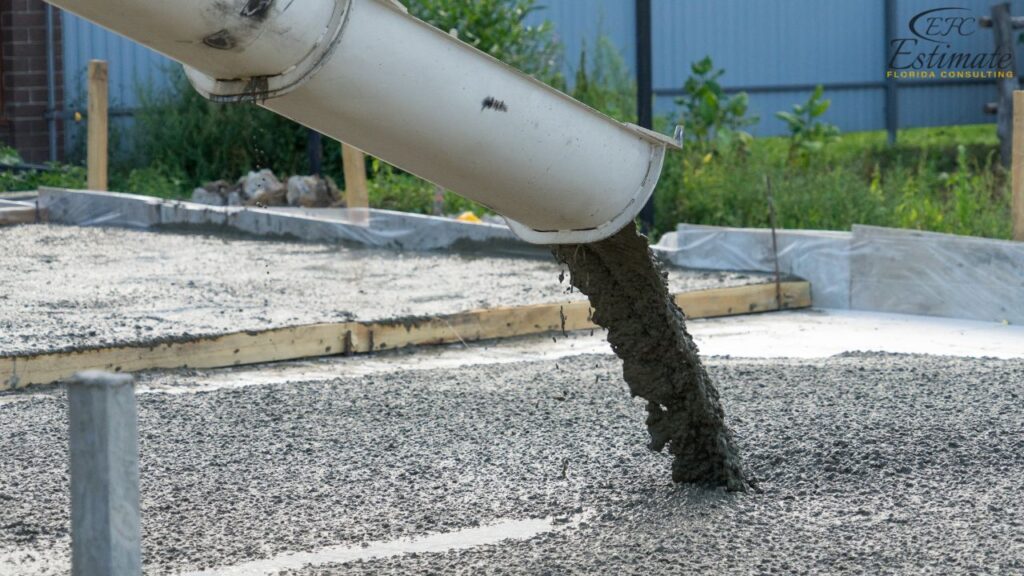
By ensuring fair compensation for labor while optimizing workforce productivity, contractors can maintain cost competitiveness without compromising on quality.
Project Complexity
The complexity of a concrete project is a significant determinant of its overall cost in Jacksonville. Factors such as project size, design intricacy, site accessibility, and custom finishes all contribute to the complexity of the undertaking. Larger projects with extensive concrete footprints or multiple structural elements typically entail higher material and labor costs compared to smaller-scale endeavors. Projects involving specialized techniques or custom features, such as decorative concrete finishes or intricate formwork, may require additional time and resources, impacting overall expenses. Site conditions, such as terrain elevation, soil stability, and proximity to utilities, can also influence project complexity and costs. Contractors must carefully assess these factors during the estimation phase to provide accurate cost projections and ensure project feasibility within the specified budget constraints. By anticipating and addressing potential challenges associated with project complexity, contractors can deliver successful concrete projects that meet or exceed client expectations while adhering to budgetary considerations.
90% More Changes to Win Bids With Our Estimate
Take the First Step to Your Bid Win – Upload Plans!
Concrete Cost by Project Size
Concrete is available for purchase and delivery measured in cubic yards. The cost per cubic yard ranges from $145 to $163, not including delivery fees. The quantity of concrete yards needed depends on the thickness required for the project, ensuring it adheres to building codes. Industry-standard concrete trucks can carry up to 10 cubic yards per trip. For orders less than 10 cubic yards, additional short load fees apply, typically between $25 and $28 per yard. For deliveries in multiples of 10 cubic yards (like 10, 20, 30 yards), full load costs are applicable, averaging from $65 to $75. Below, you will see a detailed cost breakdown for concrete delivery by yardage and examples of different types of concrete projects.
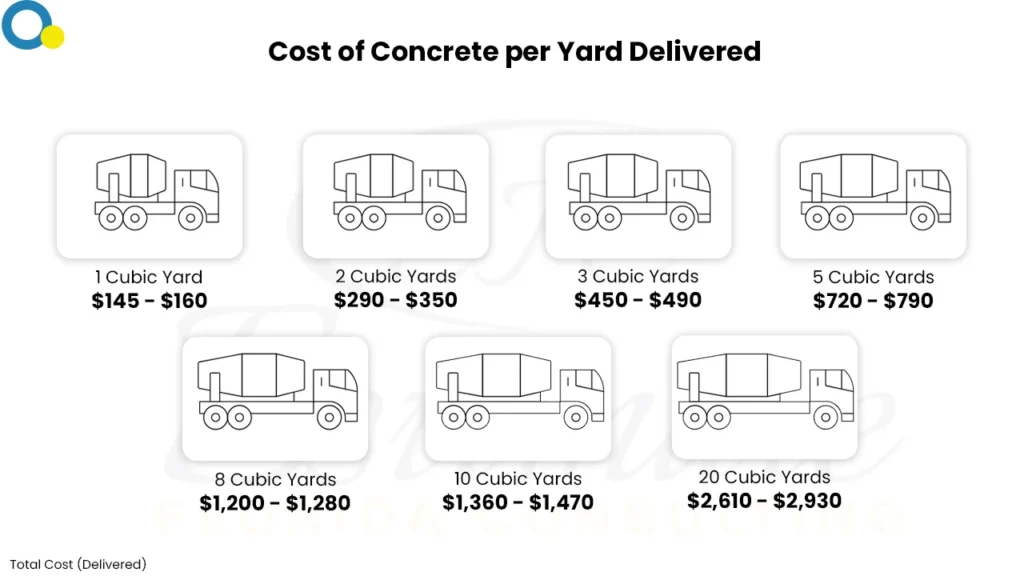
Number of Yards | Total Cost (Delivered) |
1 Cubic Yard | $145 – $160 |
2 Cubic Yards | $290 – $350 |
3 Cubic Yards | $450 – $490 |
5 Cubic Yards | $720 – $790 |
8 Cubic Yards | $1,200 – $1,280 |
10 Cubic Yards | $1,360 – $1,470 |
20 Cubic Yards | $2,610 – $2,930 |
Business Finance Loan
Find out if you're pre-qualified in seconds

Get Prequalified Now
IMPORTANT: Make sure the email and phone number you enter are correct. We will email and text you a link to get started.
Impact of Weather on Concrete Projects in Jacksonville
Jacksonville’s diverse weather patterns, ranging from hot and humid summers to mild winters, can significantly impact concrete construction projects. Temperature and humidity levels play a crucial role in the curing process of concrete, affecting its strength, durability, and overall performance. High temperatures can accelerate the hydration process, causing rapid moisture evaporation and potentially leading to surface cracking or shrinkage. Conversely, cold temperatures can slow down curing rates, increasing the risk of frost damage or incomplete hydration. Moreover, excessive humidity can prolong curing times and compromise the integrity of the concrete if proper precautions are not taken..
Best Practices for Concrete Pouring in Various Weather Conditions
Adhering to best practices for concrete pouring in different weather conditions is essential to ensure the success of construction projects in Jacksonville. During hot and dry weather, contractors should schedule concrete pours during cooler parts of the day, such as early morning or late afternoon, to minimize the risk of rapid moisture loss. Using sunshades, windbreaks, or evaporative cooling techniques can help regulate temperature and humidity levels on the job site. In colder weather, preheating materials, using insulating blankets or heating coils, and adding accelerators to the concrete mix can expedite curing and prevent freezing. During periods of high humidity, proper ventilation, dehumidification, and the use of waterproofing agents can protect freshly poured concrete from excessive moisture absorption and surface defects. Additionally, maintaining proper curing conditions, such as consistent moisture levels and temperature control, is crucial for achieving optimal strength and durability in the finished concrete.
Cost-Saving Strategies for Concrete Projects
Implementing cost-saving strategies is essential for optimizing budget allocation and maximizing the value of concrete projects in Jacksonville. One effective approach is to focus on selecting the right concrete mix for each specific project requirement. By tailoring the mix design to the intended application, contractors can minimize material waste and achieve optimal performance without overspending on unnecessary additives or reinforcements. For instance, projects with lower structural requirements, such as sidewalks or decorative elements, may benefit from using standard concrete mixes with fewer additives, while high-strength mixes may be necessary for load-bearing structures like foundations or retaining walls.
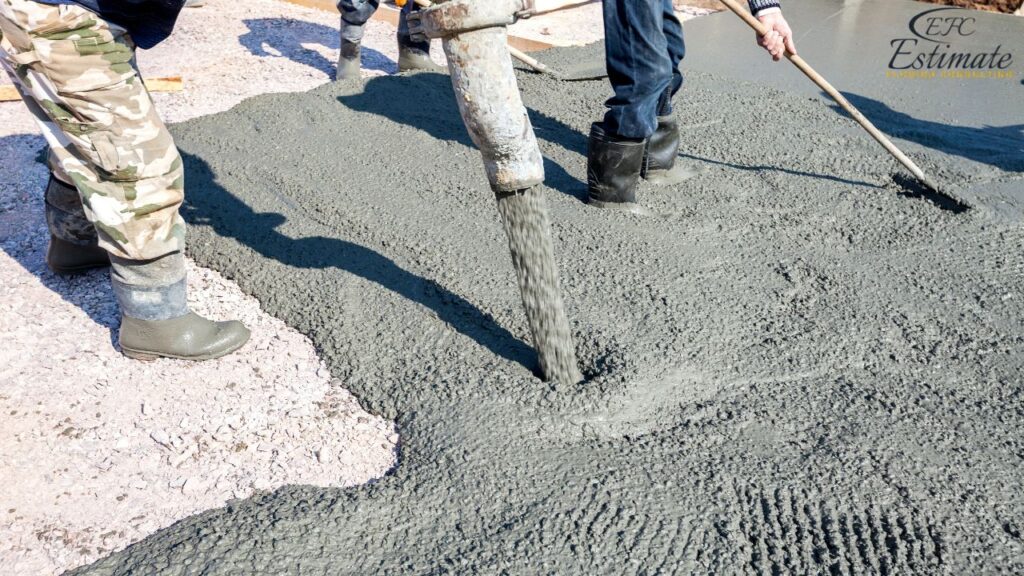
Efficient Use of Materials and Resources
Efficient utilization of materials and resources is critical for controlling costs and maximizing the sustainability of concrete projects in Jacksonville. Proper planning, scheduling, and inventory management practices can help minimize waste and optimize resource utilization throughout the project lifecycle. Contractors should accurately estimate material quantities, order supplies in bulk to take advantage of volume discounts, and closely monitor inventory levels to prevent overstocking or shortages. Additionally, adopting sustainable practices such as recycling concrete waste, using reclaimed aggregates, or incorporating supplementary cementitious materials (SCMs) like fly ash or slag can reduce environmental impact and lower overall project costs. Moreover, implementing lean construction principles, such as just-in-time delivery and lean production techniques, can streamline workflows, minimize downtime, and enhance productivity, leading to significant cost savings over time.
Get High-Quality 3D Rendering Today!
Transform your space with stunning 3D rendering that blends style, comfort, and functionality.
We Specialize in Both Residential and Commercial 3D Rendering Projects.
- Luxury Villas
- Apartment Complexes
- Condominiums
- Schools
- Office Buildings
- Shopping Malls
- Hospitals
- Hotels & Resorts
Concrete Foundation Cost per Linear Foot
Crawl spaces are usually enclosed with cinder or concrete blocks rather than being fully constructed from concrete. The first step in creating a crawl space involves pouring a concrete footing, upon which the walls are then built. The installation cost for these footings typically ranges between $18 and $25 per linear foot. This price only covers the concrete footing and does not include the cost of the crawl space walls. Adding in the expense for an average concrete block wall, which is around $8 to $9 per linear foot, the total cost for a complete crawl space construction ranges from $19 to $26 per linear foot.
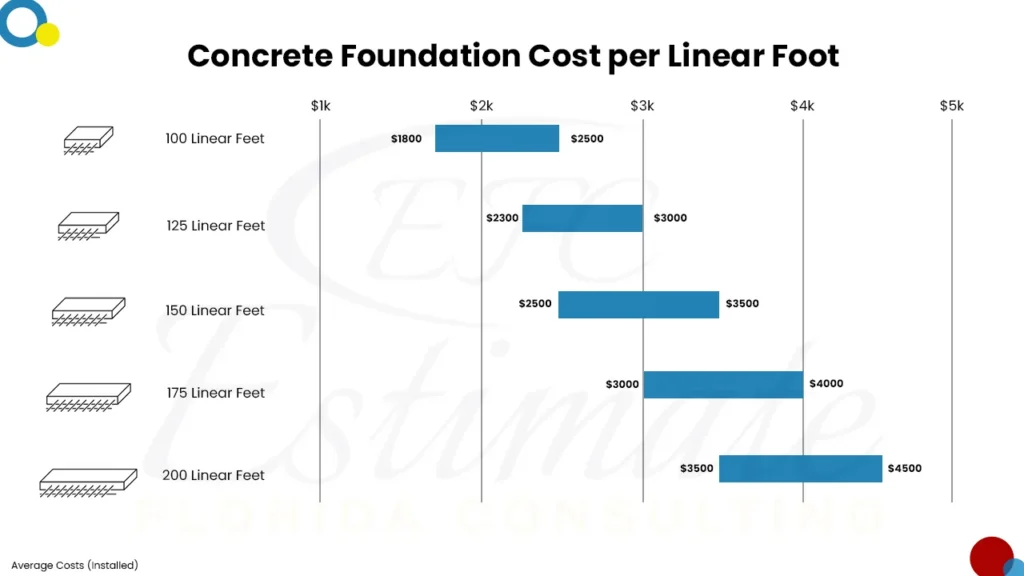
| LENGTH (Linear Feet) | INSTALLATION COST RANGE |
|---|---|
| 100 | $1,800 to $2,500 |
| 125 | $2,300 to $3,000 |
| 150 | $2,500 to $3,500 |
| 175 | $3,000 to $4,000 |
| 200 | $3,500 to $4,500 |
Understanding Concrete Grades and Their Impact on Cost
Concrete grades play a crucial role in determining the strength and durability of concrete structures, thereby influencing their overall cost. Each grade of concrete is designed to meet specific strength requirements and is composed of varying proportions of cement, aggregates, and water. Higher-grade concrete mixes typically contain more cement and finer aggregates, resulting in increased strength and durability but also higher material costs. Conversely, lower-grade concrete mixes may offer cost savings but may not meet the performance requirements of certain applications. Understanding the different concrete grades and their corresponding costs is essential for selecting the most suitable option for a given project, balancing performance requirements with budget constraints effectively.
Need Template For Your Construction Business
We provide services for Brochure, Banner, Business Card, Envelope, Invoice, etc.

Different Types of Concrete Grades
Concrete grades are classified based on their compressive strength, measured in pounds per square inch (psi), and are denoted by a numerical designation such as 2,500 psi, 3,000 psi, 4,000 psi, and so on. Each grade represents the minimum compressive strength that the concrete can achieve after a specified curing period, typically 28 days. Higher-grade concrete mixes, such as those with strengths exceeding 4,000 psi, are commonly used for heavy-duty applications like structural foundations, bridges, and high-rise buildings, where superior strength and durability are paramount. In contrast, lower-grade concrete mixes, such as those ranging from 2,500 to 3,000 psi, are suitable for less demanding applications such as sidewalks, driveways, and residential slabs. By carefully evaluating project requirements and performance expectations, contractors can select the most cost-effective concrete grade that meets the desired specifications while optimizing project costs.
Cost of Concrete Driveways Based on Size
The dimensions of your driveway play a crucial role in determining the total project cost. Driveways are available in a range of shapes and sizes, with several standard dimensions commonly seen.
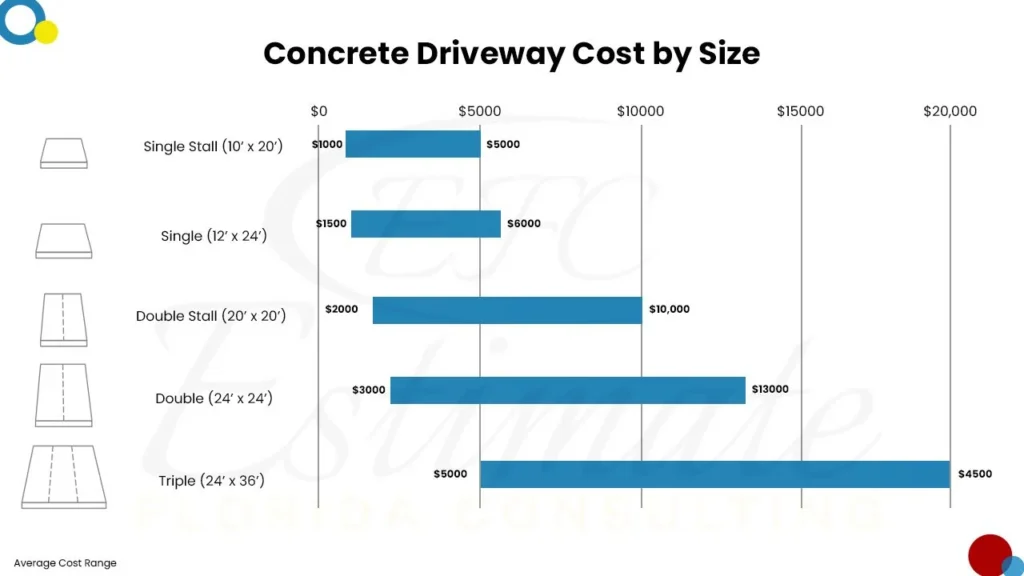
DRIVEWAY SIZE | AVERAGE COST RANGE |
Single Stall (10’ x 20’) | $1,000 – $5,000 |
Single (12’ x 24’) | $1,500 – $6,000 |
Double Stall (20’ x 20’) | $2,000 – $10,000 |
Double (24’ x 24’) | $3,000 – $13,000 |
Triple (24’ x 36’) | $5,000 – $45,000 |
Navigating the Permit Process in Jacksonville for Concrete Work
Common Requirements and Fees
Understanding Jacksonville’s specific requirements and associated fees is crucial when planning concrete work projects. Whether you’re pouring a new driveway, constructing a foundation, or installing a patio, Jacksonville imposes certain regulations and charges fees for obtaining permits. These requirements typically encompass detailed plans outlining project scope, dimensions, materials, and intended use. Permits may be necessary for tasks like excavation, forming, pouring, and finishing. Fees can vary depending on project size and complexity, with larger projects incurring higher costs. To ensure compliance and avoid unexpected expenses, thorough research into Jacksonville’s specific requirements and associated fees is essential before commencing any concrete work.
How to Streamline the Permitting Process
Streamlining the permitting process for concrete work in Jacksonville involves familiarizing yourself with local regulations and building codes. By understanding the necessary permits for your project, gathering required documentation, and promptly submitting applications, you can expedite the process. Close collaboration with city officials and inspectors can address concerns upfront, reducing the risk of delays or complications. Proactive preparation and clear communication can make the permitting experience more efficient and less stressful. With a thorough understanding of Jacksonville’s requirements and adherence to local regulations, you can navigate the permitting process smoothly and ensure your concrete work project proceeds without unnecessary hindrances.
Conclusion
In Jacksonville, FL, understanding the intricacies of concrete cost estimation is crucial for both small-scale and large-scale projects. From adhering to local regulations and navigating the permitting process to considering material costs, labor rates, and project complexity, various factors influence the overall expense. Implementing cost-saving strategies, such as selecting the appropriate concrete grade and efficiently utilizing materials, can significantly impact project budgets. Moreover, the weather in Jacksonville plays a vital role in determining the best practices for concrete pouring, further emphasizing the need for accurate cost estimations and expert project management. By engaging professional concrete installers and estimators, stakeholders can ensure their projects are executed within budget, meet all regulatory requirements, and achieve the desired durability and functionality.
Question Answer
Frequently Asked Question
In Jacksonville, FL, the average cost of concrete ranges from $130 to $160 per cubic yard, depending on the mix type, project size, and delivery location. Specialty mixes like fiber-reinforced or high-strength concrete may cost more.
Pouring a standard 10'x10' concrete slab (about 4 inches thick) in Jacksonville typically costs between $800 and $1,200, including materials, labor, and equipment. Prices may increase for thicker slabs, reinforcements, or finishes.
To estimate the cost, multiply your project's total cubic yards by the local concrete price per yard. Don’t forget to include labor, base preparation, reinforcements (rebar or mesh), forms, and finishing costs in your total budget.
Labor for concrete installation in Jacksonville typically ranges from $3 to $8 per square foot, depending on the complexity of the work. Decorative finishes or custom shapes may increase labor rates.
Stamped or decorative concrete in Jacksonville typically ranges from $10 to $20 per square foot, depending on the pattern, color, and texture. Custom designs or intricate patterns may cost even more.
Yes. The City of Jacksonville may require a building permit for concrete driveways, patios, sidewalks, or structural slabs. Permit fees can range from $100 to $500, depending on the scope of the work. Always check with the Jacksonville Building Inspection Division.
Comprehensive Trade-Specific Estimates
At Estimate Florida Consulting, we offer detailed cost estimates across all major trades, ensuring no part of your project is overlooked. From the foundation to the finishing touches, our trade-specific estimates provide you with a complete and accurate breakdown of costs for any type of construction project.
Our Simple Process to Get Your Estimate
Upload Plans
Submit your project plans, blueprints, or relevant documents through our online form or via email.
Receive Quotation
We’ll review your project details and send you a quote based on your scope and requirements.
Confirmation
Confirm the details and finalize any adjustments to ensure the estimate meets your project needs.
Get Estimate
Receive your detailed, trade-specific estimate within 1-2 business days, ready for your project execution.



Our Clients & Partners
We pride ourselves on building strong, lasting relationships with our clients and partners across the construction industry.
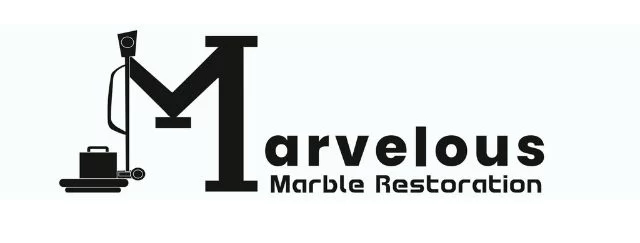
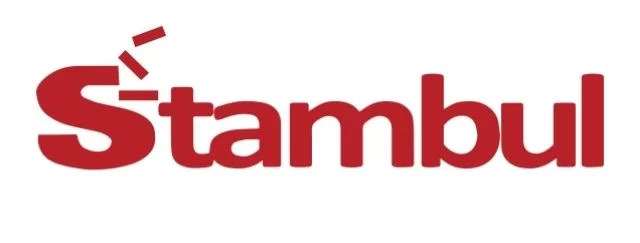
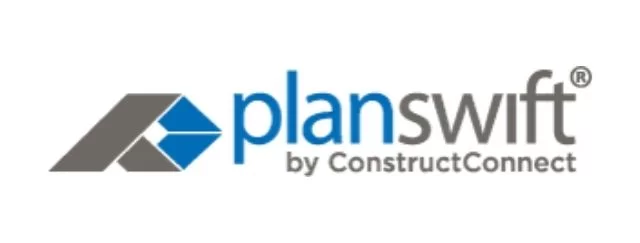
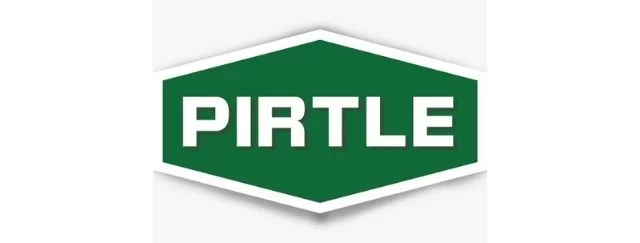

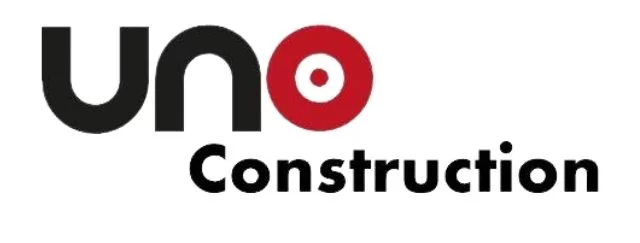
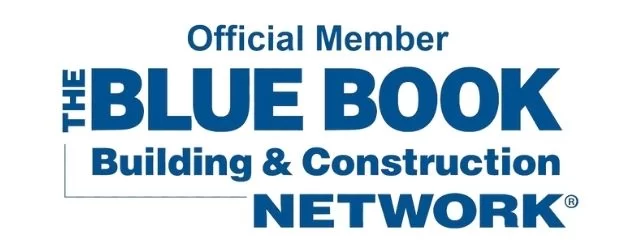
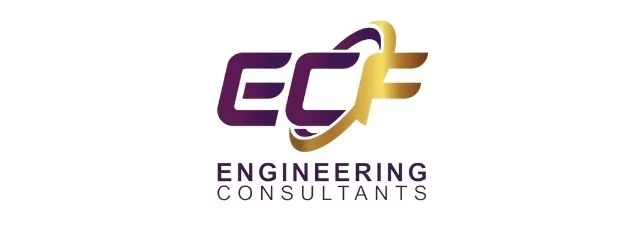
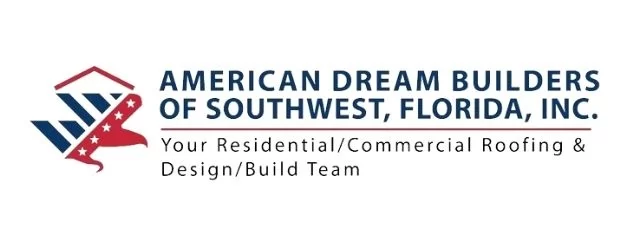
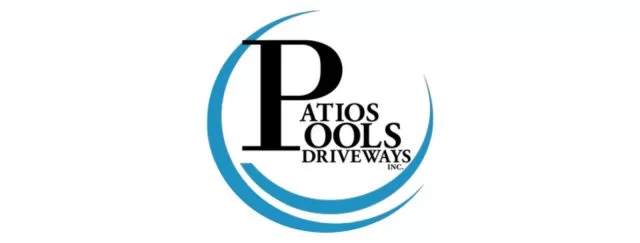

Testimonials
What Our Clients Say?
We take pride in delivering accurate, timely, and reliable estimates that help contractors and builders win more projects. Our clients consistently praise our attention to detail, fast turnaround times, and the positive impact our estimates have on their businesses.
Estimate Florida Consulting has helped us win more bids with their fast and accurate estimates. We trust them for every project!

Upload Plans Here
Places to visit if you new in Jacksonville
Catty Shack Ranch Wildlife Sanctuary
Catty Shack Ranch Wildlife Sanctuary operates as a 501(c)(3) non-profit, dedicated to offering a secure and caring forever home to endangered big cats while raising awareness about their challenges both in the wild and in captivity. Here they strictly adhere to a policy of not engaging in breeding, selling, or trading any of their animal residents. Presently, our sanctuary provides a haven for various species including tigers, lions, leopards, pumas, servals, bobcats, foxes, and coatimundis.
Covering 73 acres, Jacksonville Zoo and Gardens stands as the sole zoo in Florida’s northeast region. Housing a diverse population of over 2000 animals and nurturing 1000 plants, it distinguishes itself as one of only seven zoos in the United States boasting an animal wellness team. This dedicated team ensures the provision of optimal care for our animal residents, prioritizing their well-being above all else.
The Cummer Museum of Art & Gardens
Established on November 10, 1961, the Cummer Museum of Art & Gardens originated from the residence of Arthur and Ninah Cummer. Initially, Ninah Cummer’s modest collection of sixty pieces laid the foundation for the museum. Since then, the museum’s permanent collection has flourished, expanding to over six thousand works of art spanning a remarkable eight thousand years of art history.
Big Talbot Island State Park, Jacksonville Florida’s coast, boasts stunning natural beauty and diverse ecosystems. Visitors are drawn to its expansive salt marshes, pristine beaches, and unique coastal dune habitats. The park is renowned for its striking “boneyard beach,” adorned with weathered skeletons of trees shaped by the elements.



